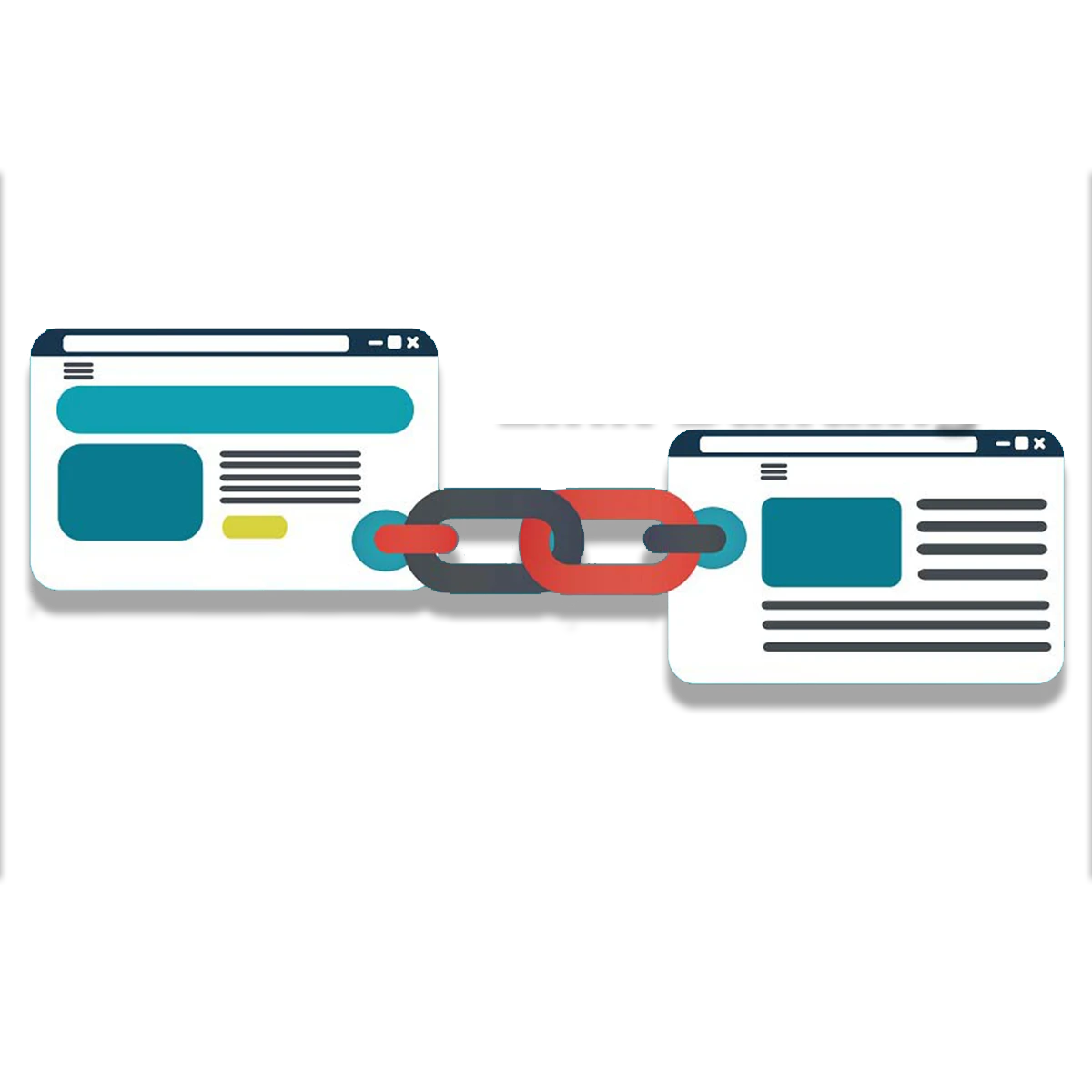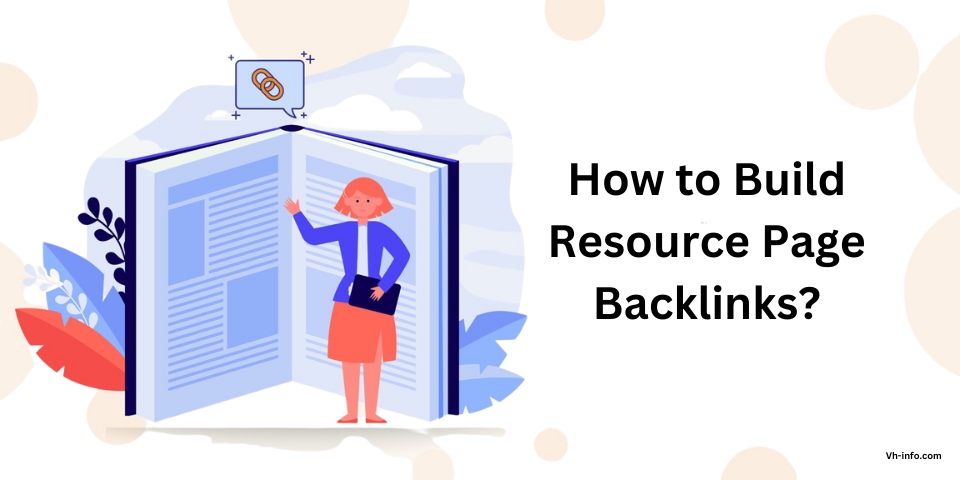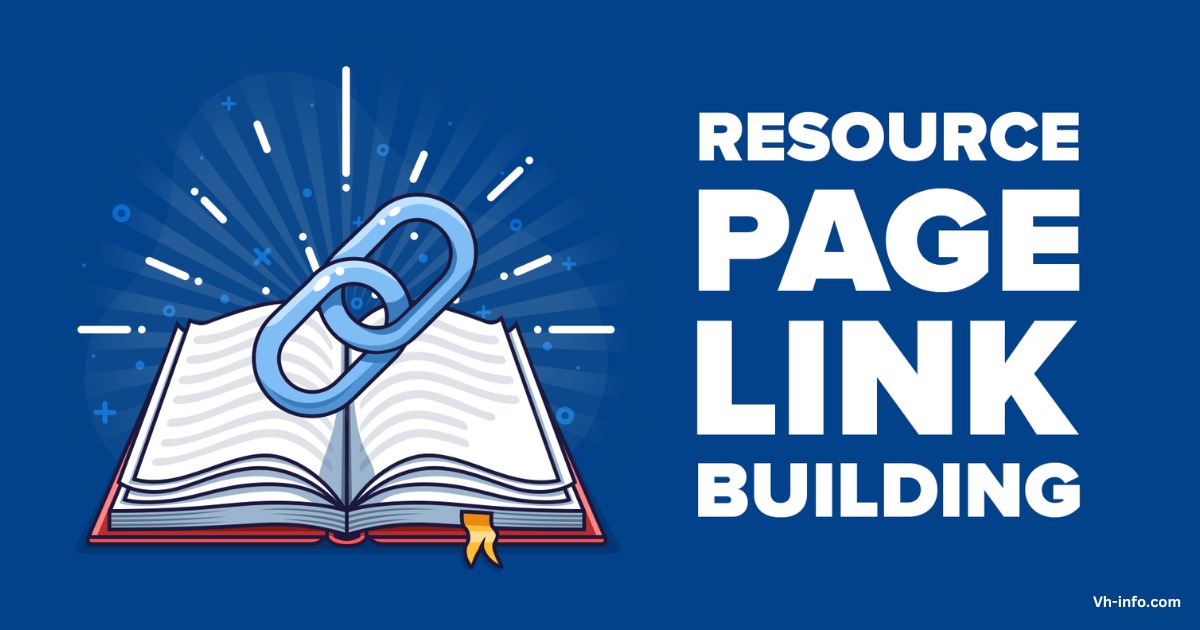Since the introduction of Google’s PageRank algorithm, link building has been an important aspect of SEO.
When it comes to building links for your website’s resources page, the strategy may differ slightly from traditional link-building techniques.
In this guide, we’ll delve into the world of resource page link building and explore why it is essential for your website’s SEO.
We’ll provide tips on how to effectively build links on resource pages, what types of websites to target, and how to create valuable content that attracts high-quality backlinks.
By the end of this blog post, you’ll have a comprehensive understanding of how resource page link building can boost your website’s authority and drive organic traffic. Let’s dive in!
What is Resource Page Link Building?

Resource page link building refers to getting backlinks from web pages that compile lists of useful industry resources, helping your website gain visibility and authority online.
For businesses like Vh-info, resource page link building is a key strategy to improve their online presence and attract more potential clients.
Why is Resource Page Link Building Important?
Resource page link building is important because it helps your website gain credibility and authority in your niche by being listed on reputable pages. These pages are regularly updated, keeping your website current with industry trends.
Additionally, since resource pages are linked to other high-quality pages, obtaining backlinks from them improves your website’s search engine rankings.
For a company like Vh-info, being featured on authoritative resource pages in the SEO and digital marketing space can establish them as a trusted service provider and attract more SaaS businesses seeking link building services.
Why Does Resource Page Link Building Work So Well?

Resource page link building is an effective strategy for several reasons:
- Relevance: Resource pages are topically relevant pages that curate useful links and resources on a particular subject or industry. When you get a link from such a page, it signals to search engines that your website is a valuable and relevant resource for that topic.
- Authority: Many resource pages are created and maintained by authoritative websites, organizations, or influencers in a particular niche. A link from an authoritative resource page can pass along some of that authority and credibility to your site.
- Editorial Links: Links on resource pages are typically editorial links, meaning they are manually curated and approved by a human editor. Editorial links are highly valued by search engines as they are seen as genuine endorsements of quality content.
- Targeted Traffic: Resource pages often attract targeted visitors interested in the specific topic or industry. A link from such a page can drive relevant, quality traffic to your website.
- Link Diversity: Resource page links can help diversify your backlink profile, which is beneficial for SEO. Search engines prefer websites with a natural and varied link profile, rather than an over-optimized one.
- Evergreen Value: Well-maintained resource pages tend to be evergreen, meaning they remain relevant and useful over long periods. This longevity can translate into a long-lasting SEO benefit for your site.
Why is Resource Page Link Building Worth Trying?
Trying resource page link building is worth it for several reasons:
- It boosts your website’s credibility and authority in your field.
- These pages stay current, keeping your website in the loop with the latest trends.
- Resource pages are usually top-notch, providing high-quality backlinks that improve your website’s search engine rankings.
Benefits of Resource Pages
Resource pages offer several benefits for your website:
- Building High-Quality Backlinks: Resource pages provide an opportunity to earn valuable backlinks from reputable websites, which can improve your search engine ranking.
- Establishing Credibility and Authority: Being featured on resource pages enhances your website’s credibility and authority within your industry or niche.
- Showing Expertise to Visitors: It showcases your expertise and knowledge to visitors, making them more likely to trust your content and offerings.
- Providing Visitors with a One-Stop-Shop: Resource pages act as a convenient hub for visitors, offering them a comprehensive collection of valuable information and resources related to their interests.
How to Build Resource Page Backlinks?

Now that you know the basics of resource page link building, let’s go through each step one by one.
Find Lists Of Links
First, you need to find many good resource pages that are relevant to your topic. Use Google to search for the type of list you want. Try different ways of wording your search. Look beyond the first page of results, check pages 5 and 6 too. Also, use search terms like “resource(s)” and “list” for different results.
Find Other Types Of Resource Pages
You can also search for pages that are like resource pages but aren’t called that exactly. These are like the detailed, ultimate guides we talked about earlier.
Start by searching on Google again. Look for big topics that your page could be part of. Then, narrow down to more specific topics related to your page.
Think creatively. For example, if your page is about pancakes, it could fit in lists about pancake recipes, breakfast ideas, cooking with kids, easy Sunday meals, and so on.
Cast a wide net in your search. Later, you can organize your findings in a spreadsheet and review them after finishing your research.
Check Out Your Competitors’ Resource Page Backlinks
When searching for places to build links, it’s smart to see what your competitors are up to.
Tools like Ahrefs or SEMRush can be really useful. Get a list of your competitors’ backlinks and look for pages with titles similar to resource pages. This is also a chance to see their other backlinks.
Check For Broken Links
This isn’t a trick for making better resource page backlinks, but it’s a useful thing to keep in mind.
As you’re browsing different resource pages, keep an eye out for broken links. You can use a Chrome extension like Check My Links to help with this. If you find a broken link, you can mention it in your outreach email as a conversation starter.
Carefully Vet Sites Before Reaching Out
Once you’ve got a list of resource pages, it’s time to decide which ones to contact.
Start by checking the domain rating (DR) of each website. If a site’s DR is too low, it might not be worth reaching out to. You can also consider the website’s traffic.
Next, look at the links already on the page. Are they leading to trustworthy, relevant websites? Or are they linking to spammy sites just to boost their credibility?
Some resource pages only link to top-quality websites, which might be hard to get on. Others have a mix, giving you a better chance.
Don’t be afraid to contact high-quality sites, especially if your content is great. With a strong pitch, you might land a valuable backlink.
Is Resource Page Link Building a Good Way to Build Backlinks?
Resource page link building is a great way to get backlinks if your industry allows it. It can be more effective than reaching out to bloggers or using other methods.
However, some niches have fewer opportunities for this, so you might need to get creative and try getting featured by related websites instead.
How You Can Build Links From Resource Pages On Other Websites?
Building links from resource pages on other websites involves several steps:
- Find Relevant Resource Pages: Use Google search or industry-specific blogs to find resource pages related to your business.
- Reach Out to Website Owners: Contact the owners of these resource pages and ask them to link to your site. Focus on websites that are authoritative or relevant in your industry.
- Follow Up: If necessary, follow up with potential link partners multiple times. Be persistent but polite.
- Be Professional: When requesting a link, be courteous and professional. Remember that you’re asking for a favor, so approach the conversation respectfully.
How To Find Resource Page Opportunities?
Here are two ways we suggest finding resource page opportunities:
- Using specific Google searches.
- Using a tool called Ninja Outreach.
Both methods can help you find strong resource pages that are more likely to add a link to your website.
We’ll explain each method in detail below.
Method #1: Resource Link Building With Google Footprints
Search for phrases like “keyword + links” or “keyword + resources” on Google. These searches reveal websites that have resource pages related to your niche. Analyze the quality of the sites and pages before pursuing a link opportunity.
Look for contact information or a resource submission form to pitch your website as a valuable addition to their resource page.
Method #2: Resource Link Building With Ninja Outreach (or any other outreach tool)
Ninja Outreach is a popular link-building tool that can streamline the process of finding and acquiring resource page links. It allows you to search for relevant resource pages based on specific keywords or phrases.
Once potential opportunities are identified, Ninja Outreach provides contact information and outreach templates to connect with website owners and request a link placement.
While these methods can be effective, it’s important to approach resource page link building ethically. Avoid spammy tactics and focus on offering genuine value to the resource page owners and their audiences.
Personalized outreach, high-quality content, and a genuine willingness to contribute to the community are essential for success.
What is an Example of Resource Page Link Building?
Here’s an example of how resource page link building works:
Let’s say you run a website called “BestHikingGear.com” that reviews and recommends hiking equipment.
One way to build links through resource pages would be to find websites that have curated lists of resources related to hiking, camping, or outdoor activities.
You might search Google for phrases like:
“hiking resources”
“camping resources links”
“outdoor adventure links”
This could surface results like:
- AllTrails.com/resources – A popular hiking trail app/website with a resources page
- REI.com/camp-learn/camping-resources – An outdoors retailer with a camping resources section
- OutdoorProject.com/resources – A site about outdoor adventures with a resources page
You would then analyze each of those pages to see if they are a good fit for your hiking gear site in terms of relevance, authority, and audience alignment.
If a page seems promising, you would try to find contact information for the website owner or an editor.
You could then pitch them on adding your BestHikingGear.com site as a valuable resource for their audience of hikers/campers looking for gear recommendations.
If accepted, you’d get a new backlink from a topically relevant, authoritative resource page – which can help boost your own site’s visibility in search engines for hiking/camping-related searches.
The key is providing genuine value to the resource page’s audience rather than just trying to get a link. Quality always wins over quantity in link building.
How to Get Featured On a Resource Page?

To get featured on a resource page, follow these steps:
- Contact the Right Person: Find the right contact, preferably the author or the editorial team. Personalize your email and mention the specific page you’re interested in.
- Make it Easy for Them: Clearly show where your resource fits in their article and provide any necessary content. Save them time and effort.
- Be Polite: Write a polite and respectful email in line with the tone of their article. Express gratitude for their time.
- Be Convincing: Give them a good reason to feature your resource. Highlight what makes it unique and valuable.
- Make it Personal: Personalize each message to some extent. Use the author’s name and mention something you appreciate about their work.
- Offer Something in Return: Consider offering something of value, like sharing their post on social media or collaborating on future projects, but avoid offering money or making it seem like a transaction.
For a company like Vh-info, offering their expertise or insights on link building for SaaS businesses could be a valuable addition to relevant resource pages.
How to Analyze a Resource Page?
To analyze a resource page, follow these steps:
- Relevancy: Check if your product or service fits well with the website. Make sure it’s a good match for both you and the website owner.
- Types of Links: Look at the other links on the page. Are they similar to what you offer, or are they different?
- Page Type: Decide if a specific page on your website would be a better fit for the resource page or if your homepage is more suitable.
- Special Offers: Consider offering a free trial or a discount to entice users and increase your chances of getting featured.
Make sure your product/service aligns with the website’s theme, check the types of links already present, choose the right page to promote, and offer something special to stand out.
More Tips and Tricks to Make Your Resource Page Link Building More Effective

Here are some tips to make your resource page link building more effective:
- Respect Preferred Contact Methods: Be considerate of the website owner’s preferred method of contact. This shows respect and increases the likelihood of a positive response.
- Find the Actual Owner: Reach out directly to the owner of the website instead of going through intermediaries. This can streamline the process and improve your chances of success.
- Specify Link Placement: Clearly state where you want the link to be placed on their site to ensure visibility and effectiveness.
- Identify Broken Links: Use tools to find broken links on resource pages. Pointing out these issues can create an opportunity for you to get a link in return.
- Avoid Paying for Links: Never pay for links as it violates SEO guidelines and can lead to penalties. Focus on earning links through valuable content and relationship-building instead.
FAQ’s:
What is Resource Link Building in SEO?
Resource link building in SEO is a strategy where you earn good backlinks by getting your useful content featured on other websites’ resource pages. It’s a legitimate and effective way to improve your website’s visibility and authority online.
Why Should I Focus on Resource Page Link Building in 2024?
Focusing on resource page link building in 2024 is important because it boosts your website’s authority, helps you rank better in search engines, and makes your website more visible online. Plus, it allows you to build relationships with others in your industry or niche.
How Can I Find Relevant Resource Pages?
You can find relevant resource pages by using search engine queries with specific keywords related to your niche, such as “resources,” “links,” or industry-specific terms.
Additionally, you can explore popular websites or use SEO tools like Ahrefs and SEMrush to identify potential resource pages.
What’s the Best Approach to Contact Website Owners?
The best way to contact website owners is to be polite, professional, and personal. Introduce yourself, your content, and explain how it benefits their audience. If you have any mutual connections or shared interests, mention them to build rapport.
How Can I Make My Content More Appealing For Link Building?
To make your content more appealing for link building, focus on creating high-quality, informative, and visually attractive content.
Include unique insights, case studies, or expert opinions to add value. Keep your content updated and relevant to maintain its appeal over time.
Conclusion
Resource page link building is a powerful strategy that can significantly boost your website’s SEO and authority.
The benefits of this approach are numerous, from improving your search engine rankings to driving more organic traffic to your site. Utilizing tools like Google Footprints or Ninja Outreach can help streamline the process of finding resource page opportunities and securing valuable backlinks.
If you’re looking to elevate your link building efforts and strengthen your online presence, diving into resource page link building is definitely worth a try.
Don’t miss out on this effective way to enhance your website’s SEO performance and domain authority.



